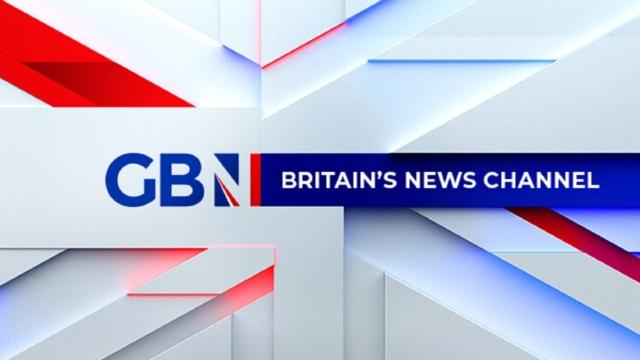GB News, which launched in June 2021, entered the British media landscape with the ambition of shaking up the status quo. Branding itself as a counterpoint to traditional broadcasters like the BBC and ITV, it promised to represent a broader range of voices and tackle issues that it claimed were ignored or dismissed by the mainstream. However, what was initially promoted as a refreshing alternative to conventional media has become mired in controversy. Frequent accusations of misleading reporting, biased coverage, and sensationalist narratives have cast a shadow over its aspirations and sparked a national debate about the role and responsibility of media in the UK.

From its inception, GB News positioned itself as a voice for those disillusioned with mainstream outlets. Its founders described the channel as a platform for opinions often marginalised by traditional media, particularly those expressing frustration with “woke” culture and liberal narratives. This approach resonated with a segment of the public, especially viewers who felt alienated by the perceived uniformity of established broadcasters. However, this commitment to alternative viewpoints quickly earned GB News a reputation for courting controversy, with many critics accusing it of amplifying divisive rhetoric and promoting sensationalism over substance.
One of the central criticisms levelled against GB News has been its approach to contentious topics such as immigration, climate change, and public health. Critics argue that the channel frequently prioritises provocative opinions over factual accuracy, leading to accusations of spreading misinformation. During the COVID-19 pandemic, for example, GB News gave airtime to views that challenged the scientific consensus on vaccines and public health measures. While the channel framed this as fostering open debate, others saw it as an irresponsible use of its platform that risked undermining trust in health authorities and contributing to the spread of conspiracy theories.
The channel has also been accused of blurring the lines between news and opinion. Many of its programmes feature hosts who openly share their personal views, a style that is more commonly associated with American networks like Fox News. While this approach appeals to audiences who value passionate and direct commentary, it has drawn criticism from those who believe it undermines journalistic standards of impartiality. For some observers, GB News epitomises a shift in media culture, where entertainment and opinion increasingly take precedence over rigorous reporting and balanced analysis.
Regulatory scrutiny has added to the channel’s challenges. Ofcom, the UK’s communications regulator, has received multiple complaints about GB News’ content, leading to investigations into potential breaches of broadcasting standards. These include allegations of misleading information and failing to provide adequate balance on controversial issues. While some complaints have been dismissed, others have resulted in warnings or recommendations for improvement. Such interventions have fuelled broader discussions about the accountability of media outlets and the extent to which they should be held responsible for the content they broadcast.
The controversies surrounding GB News also reflect deeper tensions in British society. Supporters of the channel argue that it serves a vital role in diversifying the media landscape and giving a voice to viewpoints often ignored by mainstream outlets. For them, GB News represents a necessary corrective to what they perceive as a liberal bias in traditional media. However, its detractors contend that the channel exploits cultural grievances for commercial gain, using sensationalist tactics to attract viewers and deepen political divisions. This ideological clash mirrors wider societal polarisation, with GB News both a product of and a contributor to these divides.
In addition to content-related controversies, GB News has faced internal challenges. High-profile departures, on-air blunders, and technical difficulties in its early days fuelled scepticism about its ability to establish itself as a credible news outlet. Critics seized on these missteps as evidence of a lack of professionalism, while supporters dismissed them as teething problems for a fledgling organisation. Despite these challenges, the channel has managed to carve out a loyal audience, underscoring the demand for alternative media voices in an increasingly fragmented market.
The rise of GB News raises important questions about the evolving role of journalism. In an era where trust in traditional media is declining, and audiences increasingly seek out outlets that align with their personal beliefs, channels like GB News represent a significant shift in how news is consumed. This shift challenges traditional notions of impartiality and balance, with some observers warning that it risks turning journalism into a form of ideological tribalism. Others, however, see it as a natural evolution that reflects the diversity of perspectives in a pluralistic society.
As GB News continues to navigate its path, its future remains uncertain. Will it solidify its place as a disruptive force in British media, or will it succumb to the pressures of regulatory scrutiny, public criticism, and internal discord? Whatever the outcome, the channel has already made an indelible mark on the media landscape. It has sparked crucial debates about free speech, accountability, and the responsibilities of media in a democratic society. For better or worse, GB News has become a symbol of the challenges and complexities of modern journalism, embodying both the potential and the pitfalls of an increasingly polarised media environment.
While its supporters celebrate it as a bold alternative to traditional broadcasting, its critics warn of the dangers posed by its approach to journalism. In the end, GB News may serve as a case study in the broader tensions shaping contemporary media, highlighting the delicate balance between fostering diverse viewpoints and upholding factual integrity. Whatever its legacy, GB News has undeniably changed the conversation about what British media can and should be in the 21st century.GB News, which launched in June 2021, entered the British media landscape with the ambition of shaking up the status quo. Branding itself as a counterpoint to traditional broadcasters like the BBC and ITV, it promised to represent a broader range of voices and tackle issues that it claimed were ignored or dismissed by the mainstream. However, what was initially promoted as a refreshing alternative to conventional media has become mired in controversy. Frequent accusations of misleading reporting, biased coverage, and sensationalist narratives have cast a shadow over its aspirations and sparked a national debate about the role and responsibility of media in the UK.
From its inception, GB News positioned itself as a voice for those disillusioned with mainstream outlets. Its founders described the channel as a platform for opinions often marginalised by traditional media, particularly those expressing frustration with “woke” culture and liberal narratives. This approach resonated with a segment of the public, especially viewers who felt alienated by the perceived uniformity of established broadcasters. However, this commitment to alternative viewpoints quickly earned GB News a reputation for courting controversy, with many critics accusing it of amplifying divisive rhetoric and promoting sensationalism over substance.
One of the central criticisms levelled against GB News has been its approach to contentious topics such as immigration, climate change, and public health. Critics argue that the channel frequently prioritises provocative opinions over factual accuracy, leading to accusations of spreading misinformation. During the COVID-19 pandemic, for example, GB News gave airtime to views that challenged the scientific consensus on vaccines and public health measures. While the channel framed this as fostering open debate, others saw it as an irresponsible use of its platform that risked undermining trust in health authorities and contributing to the spread of conspiracy theories.
The channel has also been accused of blurring the lines between news and opinion. Many of its programmes feature hosts who openly share their personal views, a style that is more commonly associated with American networks like Fox News. While this approach appeals to audiences who value passionate and direct commentary, it has drawn criticism from those who believe it undermines journalistic standards of impartiality. For some observers, GB News epitomises a shift in media culture, where entertainment and opinion increasingly take precedence over rigorous reporting and balanced analysis.
Regulatory scrutiny has added to the channel’s challenges. Ofcom, the UK’s communications regulator, has received multiple complaints about GB News’ content, leading to investigations into potential breaches of broadcasting standards. These include allegations of misleading information and failing to provide adequate balance on controversial issues. While some complaints have been dismissed, others have resulted in warnings or recommendations for improvement. Such interventions have fuelled broader discussions about the accountability of media outlets and the extent to which they should be held responsible for the content they broadcast.
The controversies surrounding GB News also reflect deeper tensions in British society. Supporters of the channel argue that it serves a vital role in diversifying the media landscape and giving a voice to viewpoints often ignored by mainstream outlets. For them, GB News represents a necessary corrective to what they perceive as a liberal bias in traditional media. However, its detractors contend that the channel exploits cultural grievances for commercial gain, using sensationalist tactics to attract viewers and deepen political divisions. This ideological clash mirrors wider societal polarisation, with GB News both a product of and a contributor to these divides.
In addition to content-related controversies, GB News has faced internal challenges. High-profile departures, on-air blunders, and technical difficulties in its early days fuelled scepticism about its ability to establish itself as a credible news outlet. Critics seized on these missteps as evidence of a lack of professionalism, while supporters dismissed them as teething problems for a fledgling organisation. Despite these challenges, the channel has managed to carve out a loyal audience, underscoring the demand for alternative media voices in an increasingly fragmented market.
The rise of GB News raises important questions about the evolving role of journalism. In an era where trust in traditional media is declining, and audiences increasingly seek out outlets that align with their personal beliefs, channels like GB News represent a significant shift in how news is consumed. This shift challenges traditional notions of impartiality and balance, with some observers warning that it risks turning journalism into a form of ideological tribalism. Others, however, see it as a natural evolution that reflects the diversity of perspectives in a pluralistic society.
As GB News continues to navigate its path, its future remains uncertain. Will it solidify its place as a disruptive force in British media, or will it succumb to the pressures of regulatory scrutiny, public criticism, and internal discord? Whatever the outcome, the channel has already made an indelible mark on the media landscape. It has sparked crucial debates about free speech, accountability, and the responsibilities of media in a democratic society. For better or worse, GB News has become a symbol of the challenges and complexities of modern journalism, embodying both the potential and the pitfalls of an increasingly polarised media environment.
While its supporters celebrate it as a bold alternative to traditional broadcasting, its critics warn of the dangers posed by its approach to journalism. In the end, GB News may serve as a case study in the broader tensions shaping contemporary media, highlighting the delicate balance between fostering diverse viewpoints and upholding factual integrity. Whatever its legacy, GB News has undeniably changed the conversation about what British media can and should be in the 21st century.





